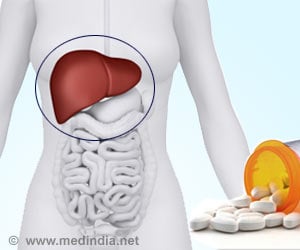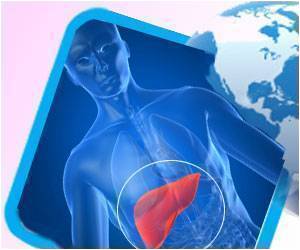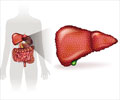Sofosbuvir Medication Information
Discover comprehensive details about Sofosbuvir, including its pronunciation, uses, dosage instructions, indications, and guidelines on how and when to take it or avoid it.
The updated prescription information covers potential side effects, precautions, warnings, and storage recommendations.
Additionally, explore the Sofosbuvir brands available in India and internationally, along with pricing information. For personalized advice, consult your healthcare provider.
Generic Name : Sofosbuvir Pronunciation : soe-FOS-bue-vir Therapeutic Classification : AntiviralsBrand Names or Trade Names of Sofosbuvir
India :
Sovaldi
Why is Sofosbuvir Prescribed? (Indications)
Sofosbuvir is prescribed to treat chronic hepatitis C (CHC) infection in adults along with other medications such as ribavirin or peginterferon alfa.Sofosbuvir is used in combination with ribavirin in children who are 12 years and above, particularly in those who weigh more than 35 kg of body weight.
Sofosbuvir is an antiviral medication that works by decreasing the amount of hepatitis C virus in the body but does not prevent the spread of the virus to others.
When should Sofosbuvir not be taken? (Contraindications)
Sofosbuvir should not be used in patients-• If there is an allergy to sofosbuvir, ribavirin or peginterferon alfa
• Children less than 12 years of age
• Pregnancy and breastfeeding
• Hepatitis B infection
Using sofosbuvir as a single agent in treating chronic hepatitis C is not recommended.
What is the dosage of Sofosbuvir?
The recommended dose of sofosbuvirin adults is 400 mg to be taken once daily.The dose of ribavirin and peginterferon alfa is decided based on the following parameters-
• Body weight of the patient
• Health status of the kidneys
• Side effects
The recommended drug combination and treatment duration for treating patients with HCV infection and HCV/HIV-1 co-infection are as follows:
Sofosbuvir, peginterferon alfa, and ribavirin should be used in patients with genotype 1 or 4 CHC for up to 12 weeks.
The combination of sofosbuvir and ribavirin is used for the duration of 12 weeks in patients with genotype 2 CHC and for 24 weeks in patients with genotype 3 CHC.
Patients with liver cancer waiting for liver transplantation must be treated with sofosbuvir and ribavirin for at least 48 weeks or until the time of liver transplantation to prevent post-transplant HCV re-infection.
Dose reduction of sofosbuvir is not recommended but the dose of ribavirin or peginterferon alfa can be altered or decreased depending on the severity of the side effects.
How should Sofosbuvir be taken?
Sofosbuvir is available in the form of tablets which should be taken by mouth either with or without food.Take the tablets of sofosbuvir at the same time every day.
Do not break, crush, or chew the sofosbuvir tablets but swallow the tablet as a whole with sufficient quantity of water.
Take another tablet if vomiting occurs within 2 hours of taking a sofosbuvir tablet but do not take an additional dose of sofosbuvir if vomiting occurs after 2 hours of taking the tablet.
Missed a Dose?
The missed dose of sofosbuvir can be taken if the time is within 18 hours from the missed dose timing.If the timing is more than 18 hours from the missed dose, avoid the missed dose and take the next dose as per the following schedule.
Avoid taking a double dose of sofosbuvir to make up for the missed dose which can result in harm.
What are the warnings and precautions for Sofosbuvir?
• Females of reproductive potential and men living with active female partners must use effective contraception during sofosbuvir combination therapy to avoid the risk of unwanted pregnancy that could result in harm to the unborn babies.• During treatment, monitoring the patient’s heart function as well as treating the symptoms and signs of decreased heartbeat such as fainting, weakness, light-headedness, breathing difficulty, confusion, and chest pain are imperative.
• Patients should be monitored for HBsAg and anti-HBc before initiating sofosbuvir combination therapy to avoid the risk of reactivation of hepatitis B virus.
What are the side effects of Sofosbuvir?
Gastrointestinal: Nausea, loose stools, loss of appetite, vomiting, constipationNervous system: Headache, fever, irritability, inability to sleep, attention deficit disorder
Respiratory: Cough, flu symptoms, breathing difficulty
Lab abnormalities: Abnormal levels of hemoglobin, neutrophils, platelets, bilirubin, creatine kinase and lipase
Others: Rashes, itching, muscle pain, chills, weight loss, blurred vision
What are the other precautions for Sofosbuvir?
If ribavirin or peginterferon alfa is discontinued for any reasons, sofosbuvir should also be discontinued.There is no specific antidote for treating sofosbuvir overdosage. Patients who are overdosed with sofosbuvir must be provided with general supportive measures under the supervision of a medical specialist.
Hemodialysis is also recommended as 4-hour dialysis can remove approximately 18 percentage of the given dose.
What are the Drug Interactions of Sofosbuvir?
Sofosbuvir concentration is affected and could result in treatment failure when given along with the following drugs and therefore should be avoided.• Anticonvulsants (e.g., Phenytoin, Carbamazepine)
• Rifampin and Rifabutin
• Drugs to treat HIV/AIDS (e.g., Ritonavir, Tipranavir)
Amiodarone taken along with sofosbuvir combination therapy may result in an abnormally slow heartbeat rate and should be avoided because of serious risk.
What are the storage conditions for Sofosbuvir?
Store the sofosbuvir tablets at room temperature between 15°C and 25°C.The tablets must be dispensed in their original container.
Never use sofosbuvir tablets if the seal over the bottle is broken or missing.
Keep sofosbuvir tablets out of reach from children.











